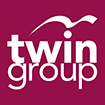Finally Italian manufacturing companies, purposely PMI, are going out from the “Middle Ages”. In fact, if on 2016, the meaning of Manufacturing 4.0 was not clear yet for a lot of Italian companies, this year this programm no longer has secrets. Not only, the need of improving the companies connectivity thanks to IT solutions, is creating a new working figure: the consultant who can help enterprises to pass from a pre-digital era to an automated and processes integrated era with the current technologies.
 This is what emerged, in synthesis, from the annual report of Manufacturing 4.0 Observatory promoted by the School of Management of Milan Politecnico. This research has been officially presented on June 23 at Assolombarda site in Milan. The survey involved a 241 companies-sample, a sector which has a big technological gap in Italy, to understand the state of art of IT solutions, Cloud Computer, IoT and automation systems adoptions (robots and machine learning).
This is what emerged, in synthesis, from the annual report of Manufacturing 4.0 Observatory promoted by the School of Management of Milan Politecnico. This research has been officially presented on June 23 at Assolombarda site in Milan. The survey involved a 241 companies-sample, a sector which has a big technological gap in Italy, to understand the state of art of IT solutions, Cloud Computer, IoT and automation systems adoptions (robots and machine learning).
The results are conforting: only 8% of the sample does not know the Manufacturing 4.0 plan (last year the same date amounted to 38%), meanwhile 61% is evaluating the adoption of these new measures. This is possible thanks to the strong incentives strategy in digital innovation with the possibility to amortize IT systems expenses for 250% or to have a tax credit for investments in reasearch and development or deduction from direct investments for innovative startups.
The adoption of Apps for manufacturing companies is increasing. From the companies sample, 800 apps, average 3,4 apps for company, have been adopted and have given impulse to the market of IT solutions. This market, nowadays, is worth 1,7 billion euros (+25% from 2016) with benefits for innovative companies and for young technological companies, which received about 2 billion dollars from 2011 to 2015. Now a new scenario is opening for Italian companies: It is necessary to organize projects basing on specific realities, to relieve the innovative prospective and to measure collected datas with the necessary competences.
New working figures: the need of ad hoc competences is creating a strong demand of new professional figures. The survey revealed that the most relevant competence searched is the capability to define the technologies adoption plan in order to improve manufacturing processes. The market needs professional figures with skills that nowadays are lacunous for many companies (46% ). Then there is the capability to digitally integrate business processes with customers and suppliers along the supply chain. So the ability to digitally link supply and production processes. 54% of companies feels prepared to Manufacturing 4.0 but 75% of it expecst to potentiate their competences with training courses, new hirings and collaborations.
Are we facing to job creation that there was not before? "In order to seize the challenge of Industry 4.0, companies need to have the necessary skills by reviewing strategies and practices for selection, recruitment and development of human resources, as well as training plans, collaborative networks” commented Mr Sergio Terzi, the director of Manufacturing 4.0 Observatory. The answer is also supported by datas: 25% of companies said they wanted to take advantage of the incentives with the hiring of new figures.
How much will companies spend? So that Italian companies become technology champions, it will take at least 10 to 15 years. But the race has already begun. According to the report, a quarter of the companies will benefit from the Plan's incentives by investing over € 1 million on average, with over 3 million points and an overwhelming majority (17 percent of the sample) willing to spend around 300 thousand euros.
"The most important part of the Industry 4.0 market, or 63%, amounting to around € 1 billion euros, is linked to the connectivity and acquisition projects of the Industrial Internet of Things," explains Giovanni Miragliotta, director of the Observatory Industry 4.0 - followed by Industrial Analytics (20%, as 330 million euros), Cloud Manufacturing (9%, 150 million euros) and Advanced Automation with a share of 8%, amounting to 120 million euros. "For now, however, the Advanced Human Machine Interface (wearable and man/machine interfaces like touchscreens, 3D scanners, viewers for increased reality) is really interesting but It still represent only 1 % Of the market: in short, let the Italian companies go out of the Middle Ages, for the rest there is still time.
Barbara D'Amico, Corriere della Sera
